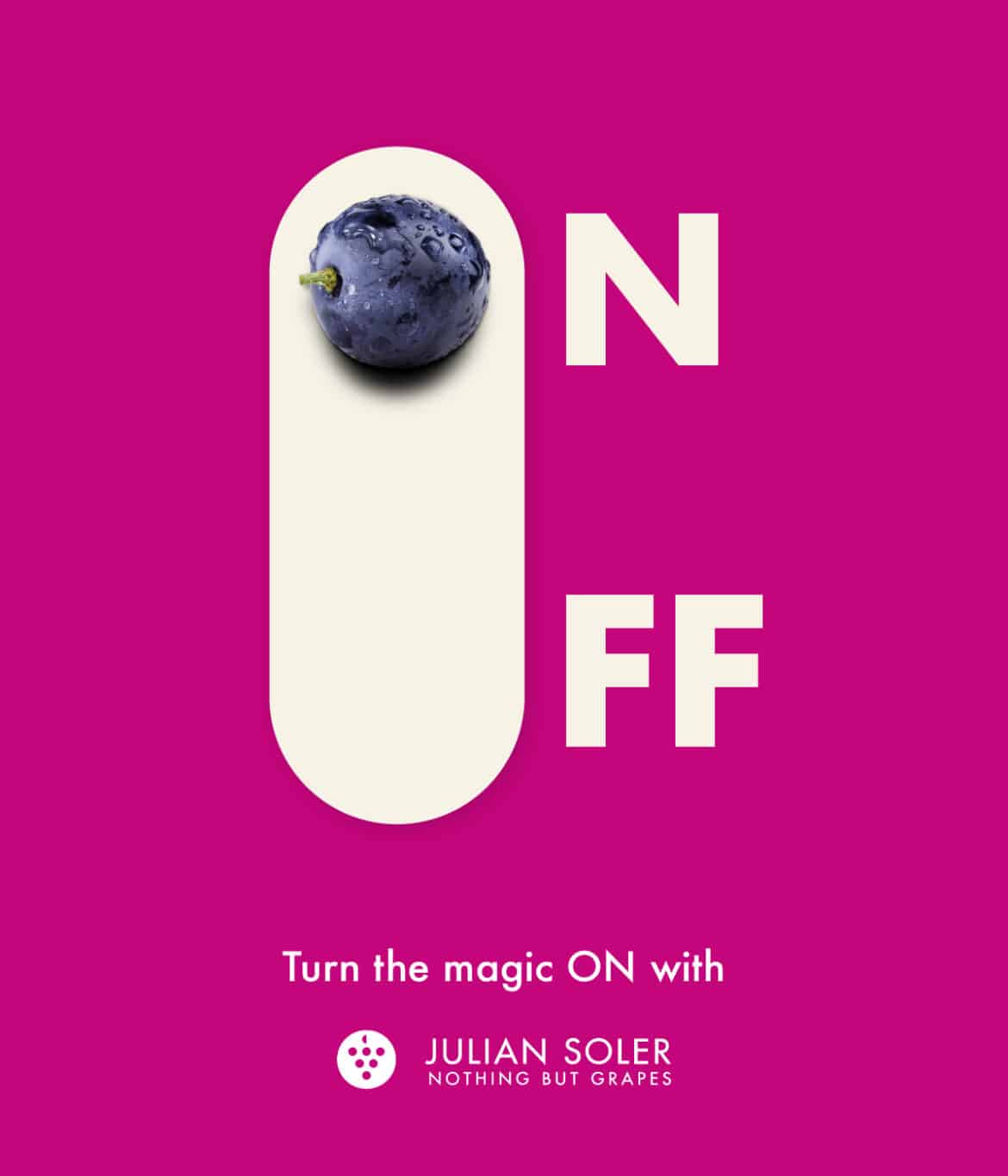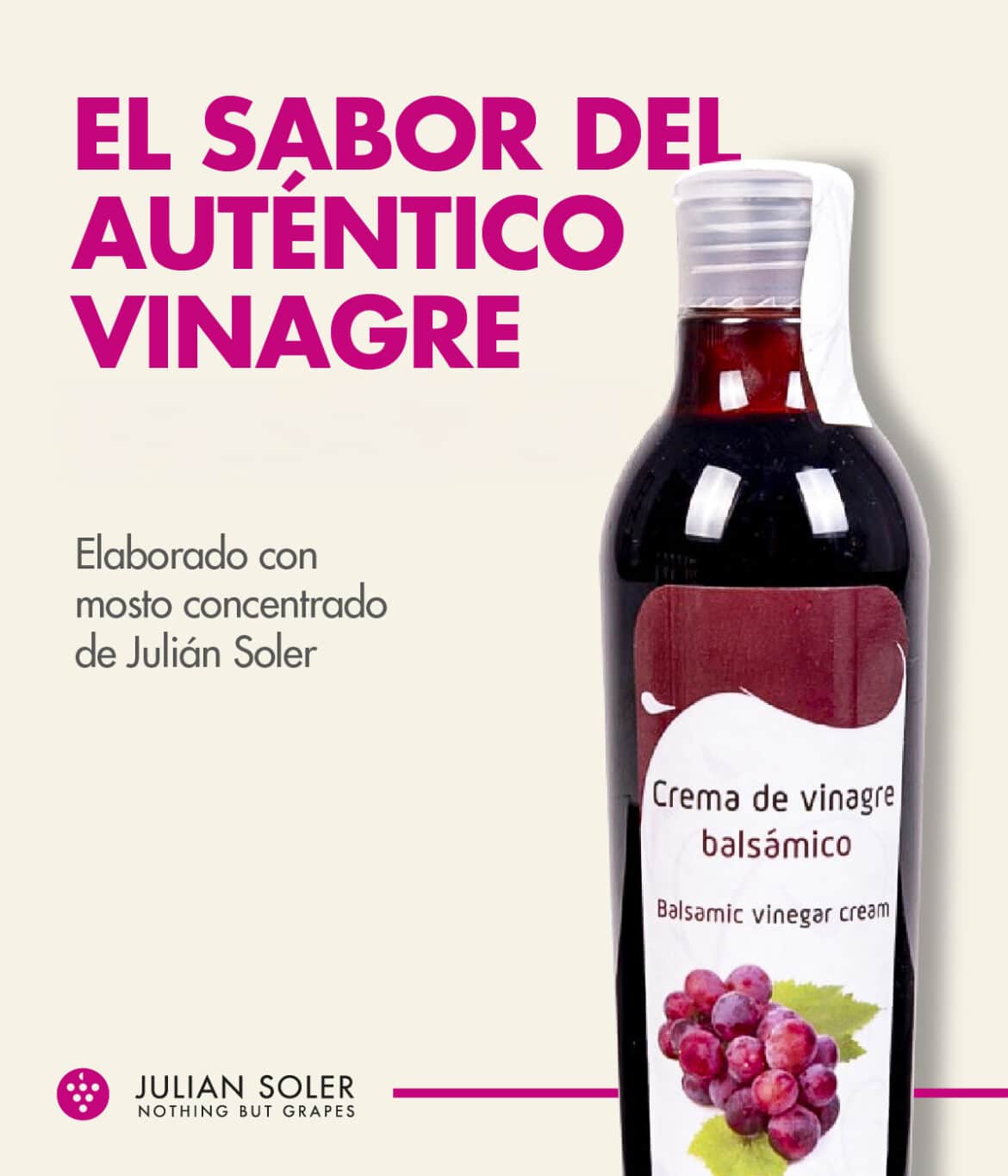Non-alcoholic beverage trend: why is concentrated grape must key?
Non-alcoholic beverages have evolved in recent years. Today, they constitute a rapidly expanding premium category, both in terms of product development and market growth. This category encompasses sophisticated offerings, functional formulations, and sensory experiences with high added value. It is a beverage segment that is redefining the global consumption landscape, ranging from premium cocktails and
- Published in RESEARCH AND DEVELOPMENT
We develop innovative products from grapes.
The fruit juice and natural beverage sector is rapidly evolving to meet new consumer demands. We are grateful to el Economista for the opportunity to share our journey at Julián Soler through an interview with our CEO, Ramiro Martínez Pérez.In the interview, Ramiro discusses how our commitment to innovation and collaboration with clients has enabled
- Published in COMMITMENT AND SUSTAINABILITY, GRAPE JUICE EXPORT COMPANY
How to use concentrated must in innovative products: real cases and applications
Grape juice concentrate is a sweet, thick elixir with an intense aroma and flavor that preserves the natural nutrients and organoleptic properties of grapes. It is a natural source of essential vitamins, such as A, C, K and E; key minerals, such as potassium, iron, calcium and phosphorus; and powerful antioxidants, such as resveratrol. In
- Published in RESEARCH AND DEVELOPMENT
50 Years of May 1st, 58 Years of History: A Day to Celebrate Past, Present and Future
They say a picture is worth a thousand words.And we couldn’t think of a better way to thank all those who have been part of the story of JULIÁN SOLER than by sharing this video recap of what we experienced last 1st of May. It was a truly special day as we celebrated two key
- Published in EVENTS AND FAIRS
Clean label with added value: how does grape must enhance functional foods?
Clean labels have become the new rule and strategic standard in the food industry. Today’s consumers demand foods made with natural, simple ingredients that are familiar to them. This has prompted manufacturers to reformulate their products and develop proposals aligned with this trend, and thus position foods effectively in the eyes of the consumer. However,
- Published in RESEARCH AND DEVELOPMENT
Ana Soler: Honouring the family legacy with commitment and creativity.
Today we speak with Ana Soler, second-generation family member and current Chair of the Board at JULIAN SOLER S.A. With a clear, calm vision, deeply rooted in her father’s legacy, Ana invites us to discover the essence of a company that has successfully professionalised without losing its soul one that now exports concentrated grape must
- Published in EQUIPO JULIAN SOLER
Did you know that must concentrate is very present in balsamic vinegars, semi-sweet vinegars and vinegar creams?
Vinegar, from the French “vin aigre” (sour wine), has been a condiment used and acclaimed since ancient times. The Romans used it as an energy drink and as a key ingredient for medicines and sanitizing substances. It was in the Middle Ages that concentrated grape must began to be used to create more refined, higher
- Published in CONCENTRATED GRAPE JUICE PRODUCTS, RESEARCH AND DEVELOPMENT
Sustainable agriculture in grape growing: the commitment of Julián Soler
“We are working to create a more sustainable grape growing system in the long term.” Today’s agricultural industry faces significant challenges due to climate change, scarcity of natural resources and the growing demand for more organic and sustainable food and products. Grape growing is no exception. For this reason, at JULIÁN SOLER, preserving the best
- Published in COMMITMENT AND SUSTAINABILITY
Leading with Rhythm: Ramiro Martínez, CEO of Julián Soler
With equal parts patience and persistence, after two years, today we sit down to talk with Ramiro Martínez, CEO of Julián Soler. Who is Ramiro Martínez? Well, we start with a question that is not easy to answer, perhaps the most personal and challenging one. People are usually defined by others rather than defining themselves,
- Published in EQUIPO JULIAN SOLER
Quality and authenticity in grape juice concentrate: what are large food companies looking for?
Today’s consumers can only be won over by delivering quality and authenticity. Why? Consumer preferences are constantly evolving. They are not only looking for palatable foods; now they also demand products that are aligned with their values and expectations, that offer them answers to a multitude of factors, such as production with the lowest environmental
- Published in GRAPE JUICE PRODUCTION PROCESS, PRODUCTION QUALITY










 by
by